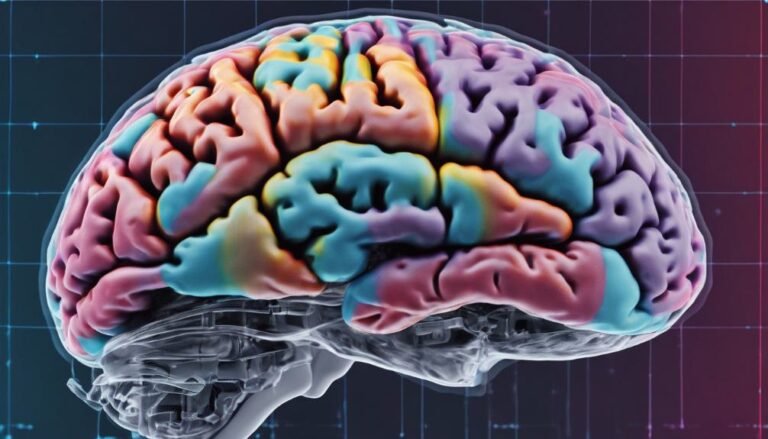AI in Healthcare Fraud Detection
In the intricate world of healthcare fraud detection, AI emerges as a game-changer, wielding its prowess in sifting through complex data landscapes with precision. Imagine a system that not only pinpoints irregularities but also adapts and evolves alongside fraudulent tactics. The potential for cost savings and operational efficiencies seems boundless. But how does AI truly navigate this intricate web of deceit? Let's unravel the mysteries behind AI's transformative role in combating healthcare fraud.
Key Takeaways
- AI enhances fraud detection capabilities in healthcare.
- Machine learning algorithms analyze vast data for anomalies.
- Achieves significant cost savings and operational efficiency.
- Identifies fraudulent activities efficiently with minimal manual intervention.
- Improves accuracy and drives successful fraud identification.
The Impact of AI on Fraud Detection
AI significantly enhances fraud detection capabilities in healthcare by leveraging machine learning algorithms to analyze vast amounts of data for patterns and anomalies. Through the implementation of AI systems, healthcare organizations can achieve significant cost savings by efficiently identifying fraudulent activities and preventing improper payments. These systems not only enhance the accuracy and speed of fraud detection but also reduce the need for manual intervention, thereby streamlining the overall process.
Moreover, AI plays an essential role in ensuring regulatory compliance within the healthcare sector. By continuously monitoring transactions and claims data, AI algorithms can detect any inconsistencies or deviations from established guidelines, helping organizations adhere to regulatory requirements. This proactive approach not only minimizes the risk of non-compliance penalties but also fosters a culture of transparency and accountability within the industry.
Leveraging Machine Learning for Analysis
In addition, by harnessing the power of machine learning algorithms, healthcare organizations can analyze vast amounts of data with unprecedented efficiency and accuracy for fraud detection purposes.
Machine learning enables data classification, allowing systems to categorize information into relevant groups based on patterns and attributes. Through anomaly detection, machine learning algorithms can identify outliers or irregularities in the data that may indicate fraudulent activities.
Pattern recognition is another key capability of machine learning in fraud detection. By recognizing recurring patterns in data, such as unusual billing practices or abnormal claim submissions, machine learning models can flag potential instances of fraud.
Additionally, predictive modeling techniques can forecast future fraudulent behavior based on historical data trends, helping healthcare organizations proactively combat fraudulent activities.
Enhancing Fraud Detection Accuracy
To enhance fraud detection accuracy in healthcare, incorporating advanced data analytics techniques is essential. Data integration plays a vital role in consolidating information from various sources such as electronic health records, insurance claims, and billing systems. By integrating these datasets, AI algorithms can analyze a wider range of data points to identify patterns indicative of fraudulent activities.
Real-time monitoring is another key aspect in enhancing fraud detection accuracy. By continuously monitoring transactions and activities as they occur, AI systems can quickly flag suspicious behavior for further investigation. This proactive approach allows for immediate action to be taken, preventing fraudulent activities before they escalate.
Furthermore, real-time monitoring enables AI systems to adapt to evolving fraud tactics, staying ahead of fraudsters who may constantly modify their strategies to evade detection. The combination of advanced data analytics techniques, data integration, and real-time monitoring empowers healthcare organizations to improve their fraud detection accuracy significantly, ultimately safeguarding the integrity of the healthcare system.
Benefits of AI in Healthcare Fraud
To conclude, the integration of AI in healthcare fraud detection not only enhances accuracy but also drives cost savings and operational efficiency. Utilizing advanced AI technology in healthcare fraud detection offers numerous benefits that enhance overall efficiency and accuracy in identifying fraudulent activities.
The implementation of AI algorithms can lead to significant cost savings by automating the detection process, reducing the need for manual intervention, and streamlining operations. AI's ability to analyze vast amounts of data quickly results in increased efficiency, allowing for the detection of fraudulent patterns in real-time or near real-time.
Moreover, AI systems improve accuracy by continuously learning from new data and refining their detection capabilities. This leads to a higher rate of successful fraud identification and minimizes false positives, enabling resources to be allocated more effectively towards legitimate claims.
The speed at which AI can analyze data also facilitates faster detection of suspicious activities, enabling healthcare organizations to respond promptly to potential fraud schemes, preventing financial losses, and safeguarding the integrity of the healthcare system.
Future Trends in Fraud Detection
Looking ahead, the evolution of AI technologies is poised to revolutionize healthcare fraud detection methodologies. Future trends in fraud detection will heavily rely on technological advancements to enhance fraud prevention strategies within the healthcare sector.
AI-powered data analytics tools are anticipated to play a vital role in identifying suspicious patterns and anomalies in healthcare data, enabling early detection of potential fraud cases.
Moreover, the integration of AI into fraud detection systems won't only streamline the process but also improve accuracy and efficiency in identifying fraudulent activities. These technological advancements will enable healthcare organizations to stay ahead of fraudsters and protect against financial losses.
Furthermore, future trends in fraud detection will emphasize the importance of regulatory compliance by leveraging AI solutions to guarantee adherence to industry standards and regulations.
By incorporating AI algorithms that continuously learn and adapt to new fraud schemes, healthcare providers can strengthen their fraud detection capabilities and safeguard their systems against evolving threats.
Conclusion
To sum up, AI in healthcare fraud detection is a game-changer, revolutionizing how we combat fraudulent activities. By harnessing the power of machine learning algorithms, we can uncover patterns and anomalies with unparalleled accuracy and efficiency.
The benefits are clear: cost savings, operational improvements, and proactive prevention of fraudulent behavior.
As we look to the future, the integration of AI will continue to drive innovation in fraud detection, setting a new standard for the industry.







